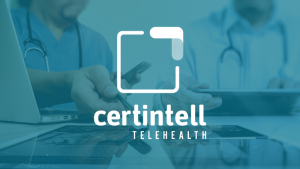Certintell’s blog series, “Industry Insights,” takes a look at what topics are buzzing with popularity in the mHealth and care management arena for Community Health Centers (CHCs), FQHCs and other community-based organizations. Here, you can explore how legislation might affect your workflows, what statistics might be preventing better patient outcomes, and tips for pushing past your biggest care barriers. Stay on top of what FQHC news you should know below! This month, explore new federal awards that may affect your organization, climate change resources for FQHCs, and nutritional handouts for patients!
 HHS Releases Fiscal Year 2024 Proposed Budget: Highlights That May Affect FQHCs
HHS Releases Fiscal Year 2024 Proposed Budget: Highlights That May Affect FQHCs
On March 9, the Biden Administration announced their proposed budget for fiscal year 2024. Here are some of the key highlights that may impact your patients or CHC administrators:
- Lowering Drug Costs: The budget helps make prescription drugs more affordable for seniors by limiting Medicare cost-sharing on high-value generic drugs to $2 and insulin at $35 a month.
- Access to Care: $7.1 billion have been allocated for Community Health Centers & $8.1 billion for Indian Health Services.
- Public Health Preparedness: $20 billion in mandatory funding is being distributed across the Administration for Strategic Preparedness and Response, Centers for Disease Control and Prevention, National Institutes of Health (NIH), and the Food and Drug Administration to assist in preparing and responding to future pandemics.
- Mental Health: SAMHSA will dedicate $836 million to the 9-8-8 and Behavioral Health Services program for LGBTQ+ individuals and Spanish speakers. The organization will dedicate an additional $100 million to mobile crisis response.
- Childcare: An estimated $600 billion over ten years will be used to fund childcare for low- and middle-income families and provide universal preschool for all four-year-old children.
- Refugees: $7.3 billion is being given to the Office of Refugee Resettlement to assist in supportive services to ensure the well-being of refugees and revamp resettlement infrastructure.
- The Wellbeing of Seniors: $150 billion will be given over 10 years to improve and strengthen Medicaid home and community-based services. This funding is designed to ensure more aging and disabled citizens can receive care in their community or home.
- Healthcare Workforce: $2.7 billion is being allocated to HRSA workforce programs to expand workforce capacity across the country, address growing concerns, and implement a new program to promote wellness in healthcare facilities.
HHS Awards CCBHC Planning Grants to 15 States to Help Address Ongoing Mental Health Crisis 
On March 16, the U.S. The Department of Health and Human Services (HHS) awarded 15 states grants to help address the nation’s ongoing mental health crisis. This announcement marks the first time these planning grants have been available since 2015. Selected states will each receive a $1 million, one-year Certified Community Behavioral Health Clinic (CCBHC) planning grant. With this additional funding, community health centers will be able to transform mental health and substance use treatment across the country.
The 15 states selected are Alabama, Delaware, Georgia, Iowa, Kansas, Maine, Mississippi, Montana, North Carolina, New Hampshire, New Mexico, Ohio, Rhode Island, Vermont, and West Virginia.
 Environmental Health & Climate Change Training for FQHCs
Environmental Health & Climate Change Training for FQHCs
The National Association of Community Health Centers (NACHC) recently published five resources for providers and administrators to help prepare and launch toward action when addressing environmental issues. Pollution, natural disasters, and climate change can cause adverse health outcomes that disproportionately affect certain communities, as they affect everyday life. However, community health centers have various opportunities to address environmental and climate health in their communities. Resources NACHC has shared with the public include:
- Resource #1: Moving Forward: A Guide for Health Professionals to Build Momentum on Climate Action
- Resource #2: Customized NACHC Climate Ambassador Training
- Resource #3: Climate Action Sheets: What to Know & What to Do
- Resource #4: Mental Health and Our Changing Climate Report
- Resource #5: Let’s Talk Health & Climate: Communication Guidance for Health Professionals
March is National Nutrition Month! 
National Nutrition Month is an annual campaign by the Academy of Nutrition and Dietetics that occurs every March. The campaign is focused on providing resources on the importance of making informed food choices and creating healthy habits. This year’s theme, “Fuel for the Future”, focuses on sustainability in the way we nourish ourselves. Here are some resources clinicians can implement in their community health centers:
- 15+ Tip Sheets and Interactive Activities to Handout to Patients
- 30 Tips on How to Stretch Your Fruit and Vegetable Budget
- How to Understand and Use the Nutrition Facts Labels
- Recipes for Heart Healthy Eating
 A Third of Americans Don’t Have a Primary Care Provider: How FQHCs Have Helped Millions
A Third of Americans Don’t Have a Primary Care Provider: How FQHCs Have Helped Millions
Another recent report from NACHC found that nearly 100 million Americans do not have access to primary care, leaving patients susceptible to complications from untreated chronic illnesses. This report found that rural hospital closures and primary care provider shortages are increasing access issues in the United States. Moreover, certain populations, such as racial and ethnic minorities, are disproportionately more likely to not have a primary care provider.
However, the report states that FQHCs will continue to be instrumental in closing these care gaps. In this study, the organization found that without community health centers, 15 million more people would be medically underserved. Since 2015, the number of patients served by these centers has increased by 24 percent. If these trends continue, FQHCs may play a pivotal role in decreasing medical disenfranchisement in the United States.



